How to protect your baby from the heat?
Summer is here and brings holidays, outdoor activities and family outings, but also the burning rays of the sun. While sunlight is essential to stimulate vitamin D synthesis, it is important to protect ourselves at all ages and to pay special attention to our babies. New-born infants and heat waves rarely mix, and young parents can sometimes feel helpless in the summer heat. With these families and their babies’ particularly fragile skin in mind, Little Guest has put together an article compiling its advice on how to protect babies from the heat.
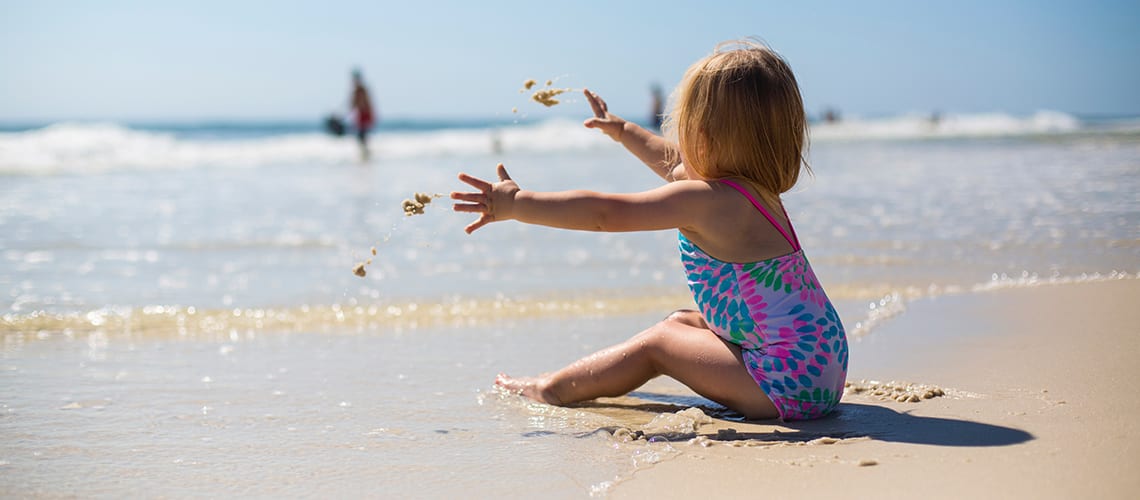
1 – ANSWERS TO THE MOST FREQUENTLY ASKED QUESTIONS
Why are babies particularly sensitive to the sun?
Before the age of 3, infants have almost no defence against the sun and its ultraviolet rays. Indeed, their melanocyte system (which acts as a shield against UV rays), which is still immature, lets through a lot of UVA and UVB rays that attack the basal layers of the epidermis. Direct sunlight is therefore a major risk, especially for their delicate skin and eyes. Keep in mind that the body’s natural defences are only fully operational after puberty. During childhood and especially before the age of 1 year, it is therefore very inadvisable to expose a child to the sun, even for a short period of time. Finally, remember that the sun does not necessarily rhyme with warmth; even if the temperatures remain mild or the sky is cloudy, UV rays are still dangerous.
What are the effects of UV rays and why should we be afraid of them?
Ultraviolet rays fall into two categories, UVA and UVB, which act at different levels of the skin:
- UVA rays penetrate the deep layers of the skin and can cause irreversible damage to elastic fibres and collagen. It is this damage that leads to the appearance and development of wrinkles, but also cancer.
- UVB rays act on melanin and are notably responsible for tanning. However, intense and prolonged exposure can lead to the appearance of brown spots on the skin, sunburn and melanomas.
To be totally protected, it is therefore essential to choose a sun cream that protects against both types of UV rays.
Protection against UVB is measured by the SPF index. For babies and young children, the use of a cream with an SPF 50+ index is the best alternative in order to guarantee optimal protection. Finally, note that the anti-UVA protection must be at least one third of the anti-UVB protection (for an SPF 50+, the UVA index must therefore be at least 17).
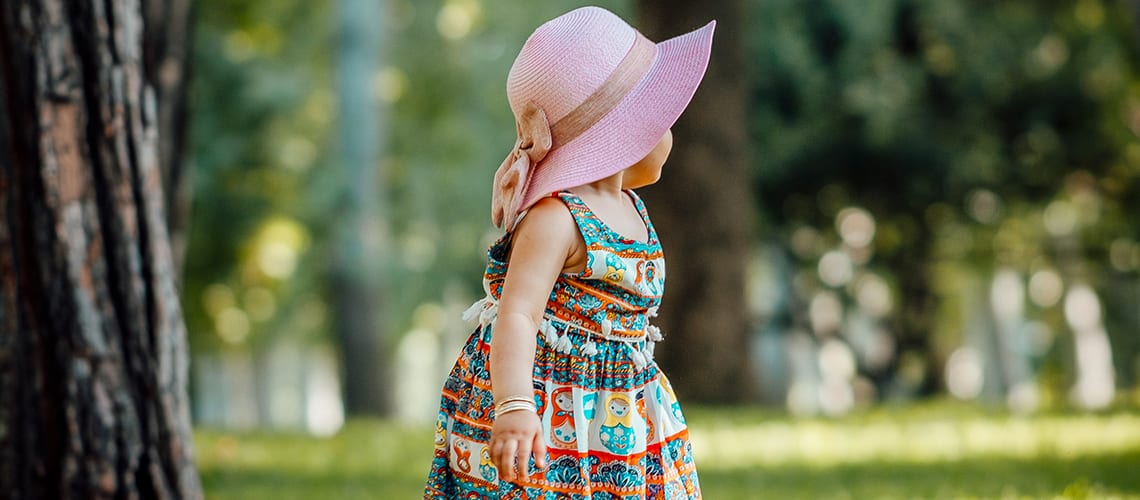
What are the consequences of heat on baby’s skin?
In addition to their dangers for your baby’s health, extreme heat can also irritate his skin even if he is not in direct contact with the sun’s rays. A hot climate can indeed favour the development of redness or more serious skin rashes that will cause unpleasant sensations of itching and irritation.
Furthermore, if the affected areas come into contact with bacteria, they can become infected and trigger the appearance of impetigo, a superficial but potentially painful skin condition. While water compresses can help relieve itching, treatment of this condition should only be established by a paediatrician.
What are the risks of dehydration and sunburn on baby’s health?
Dehydration occurs all the more easily in new-born infants because they often suffer from gastrointestinal problems. In the event of extreme heat, the food ingested deteriorates more easily and can cause diarrhea and vomiting. As a result, the child loses water and minerals quickly. Consult your doctor immediately if your infant:
- Sleeps for abnormally long periods;
- Moans and has difficulty waking up;
- Has a pale complexion and dark circles around the eyes;
- Breathes faster than usual;
- Suffers from nausea and vomiting;
In addition to dehydration, UV rays can cause sunburn which, if repeated, can in the long term promote the development of cancer. Indeed, by causing genetic mutations in skin cells, severe sunburn can lead to the development of melanomas which can be very dangerous to health.
2 – OUR 6 ADVICEs TO PROTECT BABY FROM THE SUN
1- Make sure baby is well hydrated
It’s essential that your baby stays hydrated at all times, but especially in hot weather. To do this, offer him a bottle of mineral water every half hour, if possible tempered, and let him drink at his own pace. To refresh his little body, do not hesitate to use a thermal water mister or to dab it gently with a cool, damp cloth. Finally, try to give baby several baths during the day. If a single soap bath per day is enough, short dives in lukewarm water (it is recommended to have water 2 degrees below body temperature) will do him the most good. Avoid water that is too cold or even icy! Contrary to what you might think, it will make your baby sweat even more once the feeling of freshness fades away. Finally, think about moisturizer! At the end of the day, after a good bath, don’t hesitate to apply some all over his body, his skin will thank you! You’ll find here an article presenting the best moisturizing creams from Little Guest.
2 – Protect the baby with adapted clothes
While baby’s protection involves moisturizing, it also depends a lot on the clothes he wears and the materials that come into contact with his skin. Dress your baby in long, light-coloured, lightweight clothing. Choose cotton, linen or tencel (a natural fibre made from wood) as these materials allow the skin to breathe. Avoid synthetics, nylon or polyester. You should also be aware that some brands now propose anti-UV clothing. In addition to the choice of clothing, the choice of hats is also decisive! Make sure that baby always wears a hat when he goes out; cap, bob, panama, sombrero, the choice is yours. Finally, sunglasses are essential to complete baby’s summer outfit! Don’t hesitate to consult our comparative article on the different models of baby sunglasses.
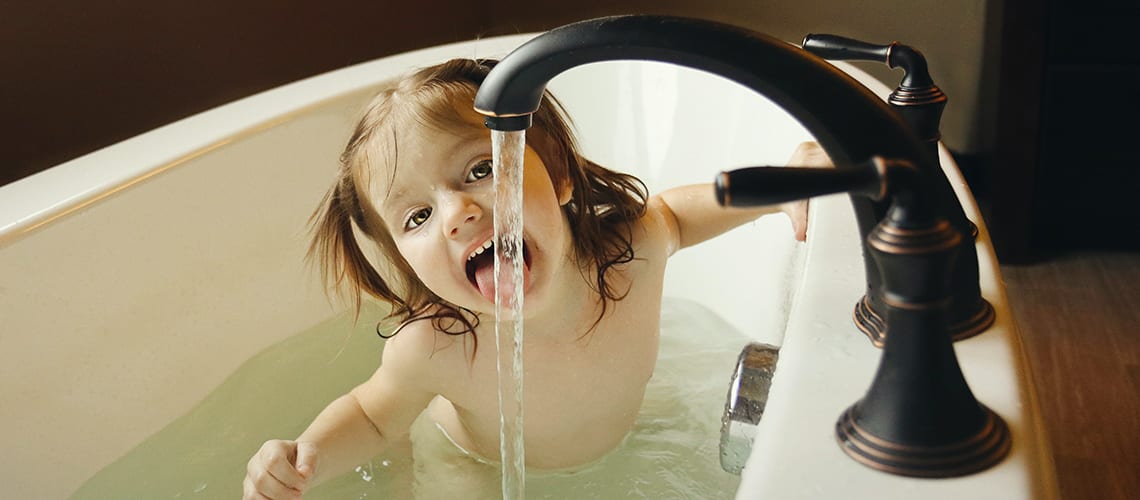
3 – Don’t skimp on sun cream
Once well hydrated and properly dressed, your baby will be protected from sunstroke and heat stroke. However, the exposed areas of his body will always be at the mercy of the sun’s rays. To remedy this, apply a sun cream with a high protection factor (SPF 50+). Choose a sun cream that is adapted to babies’ skin, which is, let’s not forget, particularly sensitive. To guide you in your choice, Little Guest has drawn up a comparison of the best sun protection for babies. Always opt for a cream formula rather than a spray. Apply the cream about 20 minutes before exposing your baby to the sun and repeat this every hour. At the end of the day, nourish your baby’s skin with an after-sun lotion. Buy sunscreen products every year because the filters in them don’t last over time.
4 – Use air conditioning with care
Whatever the temperature, nothing beats natural air. The more your baby enjoys it, the better off he’ll be. However, it is sometimes useful, even essential in some cases, to use air conditioning. However, precautions must be taken, as air conditioning dries out the environment and therefore dehydrates guests more quickly. In addition, this technique can generate excessive cold, and sudden variations in temperature from outside to inside or even from one room to another can easily affect your baby’s health. Some advice, therefore, for a reasoned use:
- Favour natural air, close the shutters but leave the windows open to allow air to circulate freely.
- Turn on the air conditioning in the room when baby is not there and turn it off before he comes back.
- If the air in the room seems too dry, use a humidifier.
- Try to maintain the same temperature in all rooms of the house.
- Air conditioning in public places (supermarkets, shops, shopping centres) is often very powerful, so prevent any cold spell by protecting your baby with extra clothing.
- Use a fan instead of air conditioning. Make sure, however, that the air flow is not directed directly at your baby.
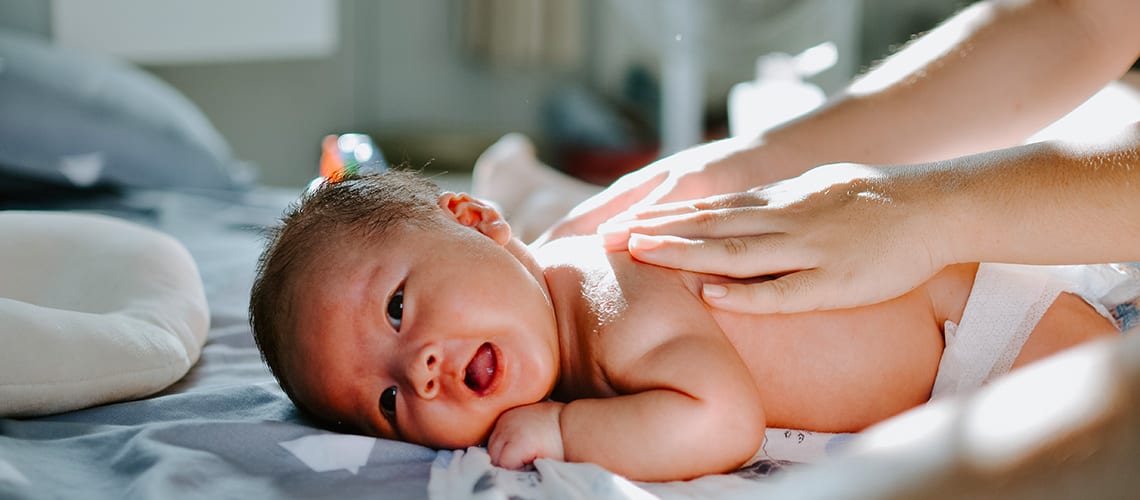
5 – Take precautions when going out with the family
What would summer be without its days spent outside, enjoying the good weather with your family? Of course, it is unthinkable to stay locked up all day in the heat. However, outings with baby should be done with certain precautions. Avoid the hottest hours of the day (between noon and 4pm) and go for walks in the shade. Never expose your child to direct sunlight, cover his head with a hat and don’t skimp on sunscreen. Open strollers are also preferable to prams, as the air circulates more freely in them. Finally, and even if it may seem obvious, never leave your child in your car, even for a few minutes. The vehicle acts like an oven, enclosing and retaining a lot of heat, and can be very dangerous for an infant.
6 – Monitor baby’s nutrition
Feeding plays a key role in protecting your baby’s health. If this statement is true at all times, it is all the more important in the summer, especially when the mercury is soaring. First of all, remember that food deteriorates more quickly in hot weather. Dairy products (milk, yoghurt, cream) in particular should be watched with the utmost caution because they are conducive to the appearance of many bacteria.
As far as baby’s diet is concerned, avoid processed products and fats in general. These foods attack the stomach and require a great deal of digestive work, which encourages sweating and therefore dehydration. Instead, give them bottles of water, natural fruit juice (with no added sugar), local fruit smoothies or green vegetables. In addition to being refreshing, they provide vitamins, minerals and many other elements that can help baby fight off possible illnesses.
Water is essential for your baby’s health; avoid carbonated water and, if possible, always opt for natural mineral water.
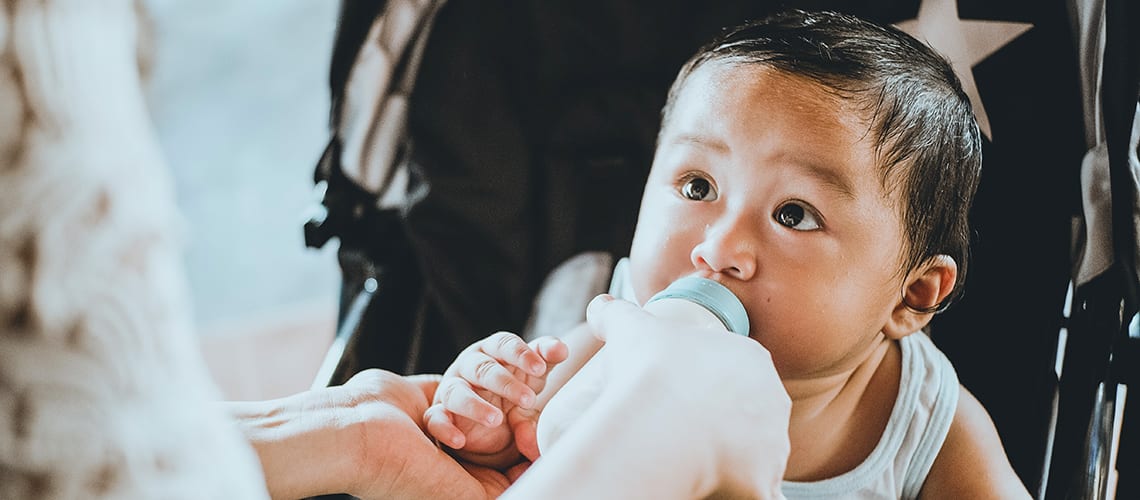
TO CONCLUDE
- When you think of sunburn, you immediately think of the beach. Beware! In the mountains, too, the sun hits hard!
- Sun umbrellas may be useful to escape from sunburn, but they offer very little protection from UV rays. So, don’t forget to put some cream and a hat on your baby, even when he is under one of them.
- If, despite these tips, your new-born infant has a severe sunburn, consult a paediatrician or pharmacist. You can, however, apply a moisturizer to soothe the pain. If blisters appear, don’t pierce them, but cover them with a sterile bandage.
- There are natural remedies for sunburn (e.g. Cantharis or Belladonna) but they must be used with care. Indeed, in homeopathy as in any other type of medicine, self-medication should be avoided as much as possible.
So, get up, get out, and – why not – get lost…but don’t get sunburned!

Guillaume, 26 years old, passionate about travelling, from Paris.
Our best-sellers hotels
Book with us!
Best price guarantee
7/7 concierge service
Guaranteed places at the kids-club
Samsonite travel gifts
Welcome and VIP benefits at the hotel
(4,9)
Let's keep in touch
Exceptional advantages, exclusive news, personalised travel tips: subscribe to our newsletter and make sure not to miss anything.
You will also like







